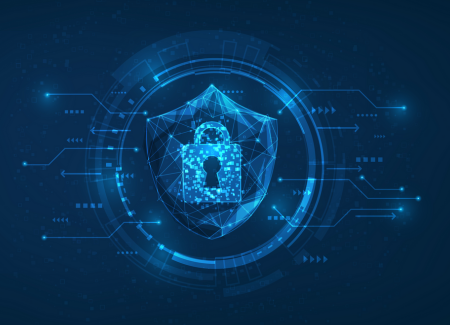5 Best Tools for Ethical Hacking: A Beginner’s Guide

A CPO Magazine report claims that at least 65% of company board members feel their organizations aren’t hack-proof enough to weather the sophistication of modern-day cyberattacks. To make matters worse, hackers are already deploying Artificial Intelligence (AI) to target small businesses. In essence, this necessitates the demand for an organized and streamlined response coming in the form of ethical hackers—cybersecurity professionals who can think like criminal hackers to fortify company infrastructure and find hidden vulnerabilities in the system. Let’s take a look at the five most relevant ethical hacking tools that are a must for any aspiring White Hat hacker.
What is Ethical Hacking?
When any individual or company gives another person or organization legal authorization to gain unauthorized access to their cyber infrastructure, applications, and data, the process is called ethical hacking. Moreover, it is a legal procedure to understand the vulnerability quotient of a digital system in its entirety.
 Importance of Ethical Hacking
Importance of Ethical Hacking
Ethical hacking tools are important for the following reasons:
- They protect sensitive public information held by companies
- Prevent organizational collapse with the daily updating of attacks
- Safeguard people and companies from blackmail and online harassment
- Offer a strong systematic response to sophisticated hacks
- Help companies understand the perspective of hackers
The Best Ethical Hacking Tools of 2023
1. Nmap
An acronym for Network Mapper, Nmap belongs to a host of cross-platform, open-source software systems whose core functionality lies in port scanning to find network vulnerabilities. With a host of scanning techniques like UDP, TCP-SYN, FTP, etc, Nmap provides detailed information on services run by the network, the number and status of firewalls installed, and the operating systems that the network handles. Moreover, it is one of those indispensable ethical hacking tools used to quickly analyze vulnerabilities in massive networks and create a detailed network map.
Pros
- Consumes very less power during network mapping
- Extreme ease of use in device auto-discovery
- Robust internal security assessment
- Deploys different kinds of scans to find open ports
Cons
- The graphical interface is not user-friendly
- The number of NSE scrips is limited
- Takes time to understand the technical know-how
ALSO READ: Top 7 AI-Driven Cybersecurity Companies and How to Get Hired There
2. Metasploit Project
It is a penetration testing computer security project that supports multiple languages and operating systems, giving users a wide palette of exploits to choose from, such as pre-written sets of commands that work on specific system vulnerabilities. Metasploit comprises as many as 1,600 exploits over 25 platforms, making it the go-to security mitigation and testing tool. Equally preferred by security architects across the globe due to its extensive customization, Metasploit has automated cross-platform manual coding as well as decreased the security costs of companies by introducing remote testing.
Pros
- Collaborative pen-testing via workspace creation
- Wide integration with other security services, such as Nmap
- Easy-to use, intuitive interface
Cons
- Recent exploit updates haven’t been comprehensive
- Solely Ruby-based
- Windows and Linux-based versions widely differ in performance
3. Maltego
Maltego belongs to the family of digital forensics software systems whose end goal is to visually represent the complexity and severity of threats in your cyber infrastructure. Its data mining and graphical link analysis tools make it very easy to mine scattered data sources in a single graph, and automatically merge information in a seamless format. Additionally, Maltego’s top-notch data representation via different views, such as main view, bubble view, entity view, etc enables forensic investigators to find hidden relational patterns among entities easily.
Pros
- Collaboration and importing features streamline investigation
- Comprehensive data visualization
- Strong contextualization capabilities
- Easily handles large volumes of data with multiple clusters
Cons
- Limited customization options
- Slows down while analyzing extensive datasets
- No recovery method for sudden software crashes
4. John the Ripper
When you are a pen-tester, you will be cracking passwords like eating cookies! This makes John the Ripper (JtR) one of the most precious ethical hacking tools that break or discover passwords of cyber systems. Moreover, the software supports a host of encryption technologies for Windows and Unix. Its genius lies in auto-detecting the hash formats (the encrypted format of conversion for any string of characters) suitable to crack a system’s security. In addition, JtR, with its dictionary-based tool, is also a directory of common passwords and functions with three kinds of password-breaking modes—single crack mode, wordlist mode, and incremental mode.
Pros
- Password hash detection is top-notch
- Easily customizable cross-platform password cracker
- Enables multiple brute-force attacks via a host of encryption techniques
Cons
- Not highly effective for more sophisticated passwords
- Not highly effective against the latest SHA (Secure Hash Algorithm) hashes
ALSO READ: Want to Know What is Hashing in Cybersecurity? The Ultimate Guide
5. Nessus
Nessus acts as a worthy remote security scanning tool that is always on the lookout for system vulnerabilities. Some distinguished qualities make Nessus testing a mandatory inclusion in the White Hat toolkit. These include:
- It does not have preloaded assumptions about server configurations, which is why it never misses system vulnerabilities
- It has its own scripting language that enables you to write codes for specific tests
- Its host of plug-ins equips cybersecurity experts with specific virus-detecting capabilities
Pros
- Vulnerability scanning is accurate and streamlined
- Easy classification of vulnerabilities into risk categories
- Multiple policies and best practices for different kinds of scans
- Presents recommendations and reports in easily accessible formats
Cons
- Slow and time-consuming analysis for large datasets
- High power consumption during deep scans
- Doesn’t perform pen-testing
What is the Best Way to Choose Ethical Hacking Tools?
There are millions of ethical hacking tools in the market today. However, you should be on the lookout for an all-round, end-to-end security measure that covers the following domains:
- Cryptography
- Web app hacking
- Cloud computing security testing
- Network perimeter hacking
- Mobile, Internet of Things (IoT) testing
- Information security and testing
- Footprinting and reconnaissance techniques
ALSO READ: Are Ethical Hacker Skills Still Valued by Top Organizations in the World?
Is Ethical Hacking Legal?
Despite all the negative connotations of the word “hacking”, it is perfectly legal to perform ethical hacking provided you meet the following criteria:
- You have written permission: This requires authorized permission from the organization whose security infrastructure you are observing and testing.
- You are a certified White Hat hacker: White Hat hackers use their hacking skills to find vulnerabilities. You can become one by joining certified courses and degrees such as Certified Ethical Hacker (CEH) and GIAC Penetration Tester (GPEN).
That there is an extensive demand for cybersecurity professionals is evident from the expectation that the domain is set to attract over three million jobs in 2023. So, solidify your understanding of these ethical hacking tools with Emeritus’ industry-graded cybersecurity courses, developed in association with globally renowned universities.
Write to us at content@emeritus.org












